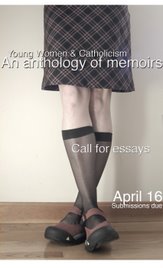
As I sat down to write this reflection, I opened my e-mail to find a note from my soul-sister Cindy, who is traveling through Central America and spent the day in El Mozote, El Salvador, the site of the 1981 massacre of more than a thousand civilians by graduates of the School of the Americas (now known as the Western Hemisphere Institute for Security Cooperation, or WHINSEC). From my cozy office in Wisconsin, I am tearing up reading her description of the city today – twenty-eight years later there are still visible bullet holes and bloodstains.
Cindy and I first met in a big red house in south Minneapolis when we had the good fortune of being part of the St. Joseph Worker program, along with three other (brilliant, charming, and gorgeous) women. We lived together, prayed together, ate together, and grew together. Cindy and I worked in ministries that put us in relationship with our immigrant neighbors – Cindy as a medical translator, and I in a transitional home with immigrant women. As the days passed, I had the joy of watching Cindy grow, of cheering her on as she became more confident of herself and her desire to make our world and our church always more loving and hospitable.
This week's gospel reading is Mark's story of the baptism of Jesus, which in this gospel marks the beginning of Jesus' public ministry. It some ways, it doesn't make sense why the sinless child of God would be baptized. But if we think of baptism as more than simply the forgiveness of sins, it becomes clearer. Baptism is always a beginning. It is a formal initiation rite in which we also mark ourselves as children of God. To each of us at our baptism, God has said, "Behold my beloved; with you I am well pleased." With these words, God commissioned Jesus, and all of us, to spread the good news of healing and welcome. We do not go out to serve each other to make God love us – we do it because we are so loved, and we can't bear to keep it to ourselves.
This Sunday also marks the beginning of ordinary time in the liturgical year. I like that the baptism of Jesus starts this season off. Remembering such an extraordinary event as the heavens parting and God's voice ringing out reminds us that even the average and the everyday is a chance to be suddenly surprised by the ways God works in our lives.
As my year with the St. Joseph Workers went on, I found myself "commissioning" Cindy in various ways. "I've never done anything like this before," she said at the first anti-war protest we attended together; by the end of the year, she was dragging me onto the streets. "Can I say that?" she'd ask when she had shocked herself with her righteous anger; "Yes, Cindy! Trust yourself!" I would say. She hasn't stopped since. And I sit here and I imagine her in El Mozote, and I know that she continues to follow God's call in every way she can, even when it's heartbreaking or scary.
Cindy, too, has been the voice of God in many of my days, calling me beloved even when I didn't feel it. "Oh, Johänn," she'd say (her nickname for me), "you're so brave." Or smart, or kind, or beautiful, or passionate, or any number of superlatives I couldn't believe about myself unless she said it. She drew out parts of me that I didn't know I had – a fierce protectiveness and more patience than I've ever exercised. She continues to teach me that being the beloved of God means following the call to border towns, to the gates of Ft. Benning, to El Mozote, to shelters and seminaries and wherever the journey takes us next.
Picture from the author's collection. From right, Cindy, Johanna, and one of their soul-sisters and housemates, Berit, at the Minneapolis March for Immigrant Rights, 2005.
Johanna Hatch is a feminist activist, writer, and amateur hagiographer living in Wisconsin and working in non-profit administration. She is a graduate of the College of Saint Benedict and the recipient of the Katharine Drexel Scholarship at the Washington Theological Union. She currently resides in Wisconsin with her spouse Evan.




























